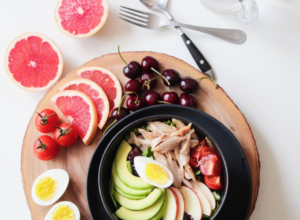4 essential dietary choices for your elderly parents
4 essential dietary choices for your elderly parents
 As someone providing support for an elderly parent, AgingCare.com offers some helpful advice on getting the right nutrition for them. It gives these four nutritional recommendations to keep your parent healthy as they age.
As someone providing support for an elderly parent, AgingCare.com offers some helpful advice on getting the right nutrition for them. It gives these four nutritional recommendations to keep your parent healthy as they age.
1. Omega 3 Fatty Acids
Inflammation can cause arthritis, cancer and heart disease. Omega 3 fatty acids can be found in fish and flaxseed oil. It’s recommended that your parent have meals containing these fatty acids at least twice a week. Many Omega 3 supplements are available. Ask your parent’s physician if a supplement is right for them.
2. Calcium and Vitamin D
As people age, it has been proven that they need more calcium and Vitamin D. Some reports show that large numbers of the population are already deficient in Vitamin D. Vitamin D becomes increasingly important as we age. According to Swiss researchers who used collective data from multiple studies, elderly Americans who took at least 800 units of Vitamin D daily are 30 percent less likely to suffer a fractured hip. It’s hard for most to get the recommended daily value of Vitamin D, so check with a doctor about the possibility of taking a supplement.
It’s commonly known that calcium helps with bone health. An added benefit is that it also lowers blood pressure. This is primarily to preserve bone health. One added benefit of calcium is that it helps to lower blood pressure. Those over 50 are recommended to intake at least 1200 milligrams per day of the nutrient — equal to about four cups of milk per day. If your parent finds it difficult consume recommended amounts by eating or drinking consult with your parent’s doctor to see if a supplement can be added.
3. Limit Sodium
Relatively little of our daily sodium intake comes from table salt. Not sprinkling an entire saltshaker onto french fries helps to limit sodium intake, but you must look at the processed and refrigerated foods that your parent consumes. Most foods that come prepackaged contain an amount of sodium. A safe bet for low sodium are fruits, which should be incorporated as often as possible into the diet.
4. Water
Keeping your elderly parent healthy might be as simple as assuring that they’re properly hydrated. As we age, we don’t get thirsty as often even though our bodies still require the same amount of water intake. A good way to check if your parent is dehydrated is take a look at their urine. If it is dark and cloudy, they need more water. If it is light and clear then they are probably getting the proper amount.
Physicians Choice Private Duty currently serving Omaha, Eastern Nebraska and Western Iowa ” provides seniors and their families a complete understanding of the available care options and helps families maneuver through the challenges of the system. All Physicians Choice Private Duty services are directed by registered nurses or social workers with no long-term contracts. Contact us today for help with your senior care needs.
“Physicians Choice Private Duty solves the challenges families face in caring for aging parents, with a focus on strategies that keep them in their homes. To learn more about our solutions, visit us today..“


